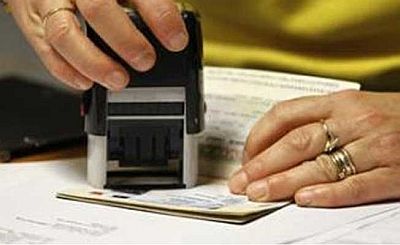 The United Kingdom Supreme Court on Wednesday rejected a challenge against immigration rules requiring people to speak English before joining their spouses in Britain, a landmark ruling which could affect thousands of immigrants from countries like India.
The United Kingdom Supreme Court on Wednesday rejected a challenge against immigration rules requiring people to speak English before joining their spouses in Britain, a landmark ruling which could affect thousands of immigrants from countries like India.
The case was brought by two female British citizens whose husbands, from Yemen and Pakistan, want to come to the UK to be with their families.
However, under the UK's spouse visa rules for nationals outside the European Union, the men must learn a basic level of English and pass a test at an approved centre before being allowed to enter the country.
Saiqa Bibi and Saffana Ali claimed their husbands would not be able to pass a test before coming to the UK and argued that the men would have to learn computer skills and travel long distances to take their English tests, making it unfeasible.
The court was told that this meant their right to a private and family life under Article 8 of the European Convention on Human Rights was being breached.
A panel of five judges were asked to rule whether the pre-entry measure was "unreasonable, disproportionate and discriminatory".
They unanimously dismissed the appeal but indicated that the way the scheme operated might be unlawful and asked the women's lawyers to present further arguments.
They also suggested that exemptions may be made in cases where it was impractical to apply the rule.
The Supreme Court judgement follows earlier rulings in the high court and Court of Appeal that there was no disproportionate interference with family life.
In written submissions to the Supreme Court justices, James Eadie, representing the UK Home Secretary in the case, told the court that the case concerned the provisions of the immigration rules requiring applicants for "spouse visas" to demonstrate that they have achieved a certain level of competence in the English language, subject to certain exceptions.
The visa entitles the spouse to enter the UK for a limited probationary period.
After that period is over, the spouse can then apply for indefinite leave to remain if the requirements of the immigration rules are satisfied.
Where an applicant for a spouse visa does not satisfy the pre-entry language requirement, the entry clearance officer will automatically consider the issue of whether there may be exceptional circumstances that warrant the grant of entry clearance outside the immigration rules on grounds of Article 8 "because refusal would result in unjustifiably harsh consequences for the applicant or their family".
Eadie said if an application was refused, the applicant could appeal against that refusal on Article 8 grounds.
He argued that the pre-entry language requirement did not violate Article 8.






 © 2025
© 2025